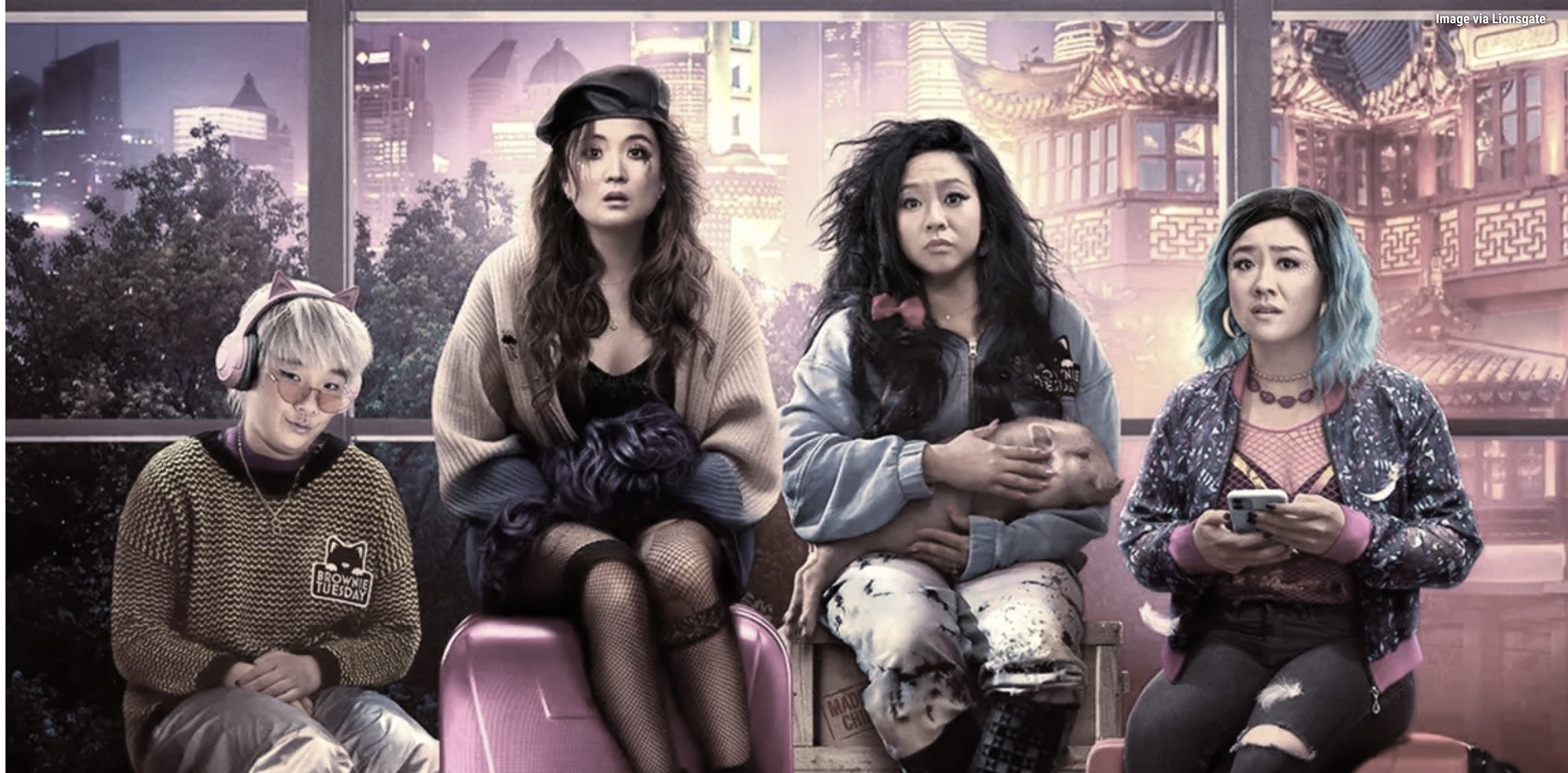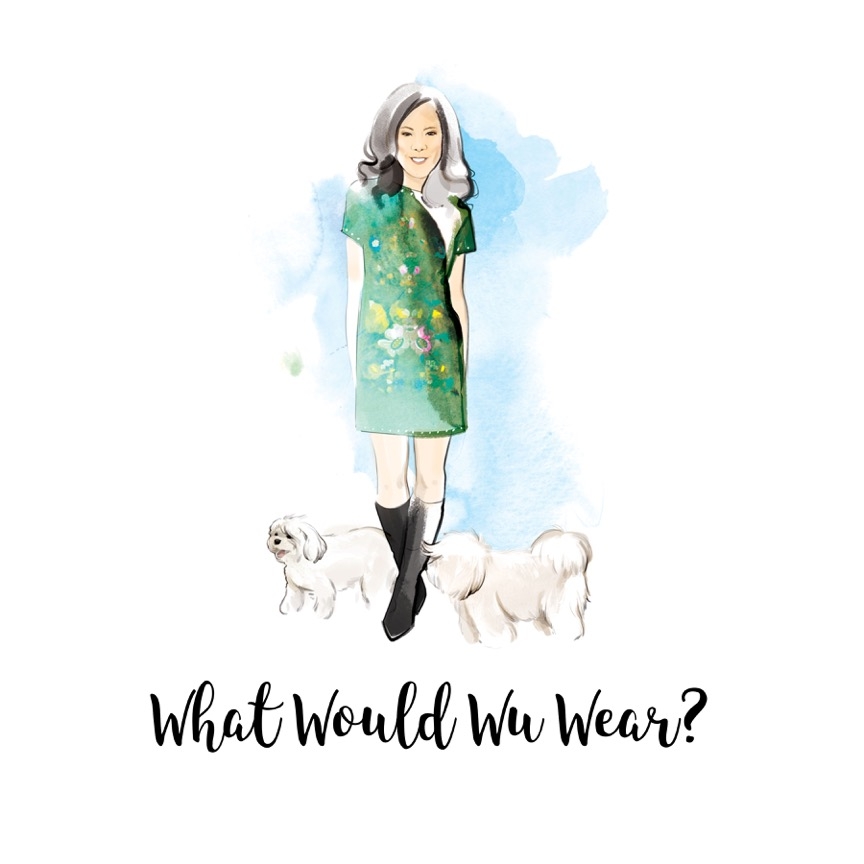Went to See ‘Joy Ride.’ I Felt Seen.

I never thought a raunchy, R-rated comedy would strike such a nerve with me — or be such a thought-provoking exploration of cultural heritage and the pressures of assimilation. But here we are.
I recently saw “Joy Ride,” which follows four Asian-American women on a road trip to China. The movie is both hilarious and touching, and I give it an enthusiastic thumbs up for anybody who has a high tolerance for raunch. But, for reasons that — let me be clear — have nothing to do with all the dirty stuff, the movie struck a nerve with me.
“Joy Ride” opens on a playground in the appropriately named White Hills, an overwhelmingly white suburb in Washington state. A white couple approaches an Asian couple and asks if they’re new in town. The Asian woman answers — with no hint of an accent — that they’re new to town, but not to the country.
Fortunately, the white couple had the best intentions: they wanted a playmate for their daughter, Audrey, who was adopted from China. The two girls instantly bond after Lolo — the girl with Chinese parents — punches a boy who uses an anti-Asian epithet.
Flash forward — via an expository montage featuring Audrey as the stereotypical overachieving model minority winning every award, and Lolo as the profane, artistic rebel — and Audrey and Lolo are headed to China, with Lolo serving as translator to Audrey, now a successful lawyer who has an important client meeting there.
Audrey checked all the boxes for me: adopted (check) Asian-American (check) overachieving (boldface check) lawyer (check). The only major difference was that Audrey was adopted by a white family whereas I was adopted by a Chinese family (at the time, non-Asian families weren’t allowed to adopt Asian babies in my home state of New York).
I suspect most adopted children struggle with identity, particularly those of us who don’t know our biological parents. When you add being Asian-American in a country where only about 7% of the population is Asian, trying to find where you fit in can be a lifelong struggle.
Like Audrey, I had never been to China until I was an adult. Lolo — who brought her cousin, nicknamed Deadeye, on the trip with her — had been to China several times, is close to her extended family there, and speaks fluent Mandarin. They also meet up with Audrey’s college roommate, now a successful actress in a Chinese soap opera.
When Audrey got off the plane in China, she was overwhelmed by — for the first time — being with people who look like her. I had the same feeling on my first visit to China in 2008.
Just as I did, however, Audrey quickly realized her comfort was, literally, only skin deep. She didn’t speak or understand the language, and her familiarity with the culture was rudimentary at best.
Through Audrey, “Joy Ride” delves into the intricate dance between cultural heritage and the desire for assimilation, capturing the identity crisis many Asian-Americans (especially Asian-American adoptees) feel when we confront the full complexity of the assimilation quandary: not feeling like we fully belong in the U.S., but also not quite at home in our supposed homeland.
As Audrey put it, “I don’t belong anywhere.”
During their road trip to China, Audrey embarks on a search for her birth mother. It would spoil the film to say more, but, once again, Audrey’s life bears more than a passing resemblance to my own.
“Joy Ride” is a humorous (and, fair warning, extremely raunchy) exploration of Asian-American identity and assimilation at a time when anti-Asian sentiment and violence are on the rise. The combination of Covid-19 and anti-China sentiment expressed by political leaders tapped into the vein of racism that’s always existed in America, and it’s made life more difficult for anyone who can trace their heritage to Asia.
Not that it should matter, but Asian-Americans have a long history of service and success in the United States. My father, for example, spent his adulthood in a wheelchair because of an injury suffered on the first day of the Normandy invasion. Yet we are still challenged about our patriotism and made to feel perpetually foreign.
I grew up and attended college in New York, and I always enjoyed living in one of the country’s great melting pots. As a kid, I took for granted that America is a magnet for people from across the globe looking to live in our Great Experiment. I was always surrounded by people from different cultures — Italians, Poles, Puerto Ricans, Dominicans, Haitians, and, of course, Chinese, among others — and it never occurred to me that the color of my skin or the shape of my eyes made me any less American than those who came here from Europe.
Apparently, though, not everybody feels the same way. I have fortunately never personally confronted the overt anti-Asian racism some of my friends and family have, but I’m not immune to it either.
Still, I remain hopeful that all Americans will someday embrace and respect cultural diversity and the strength it gives our entire country. “Joy Ride” — despite offering up a level of crudity that would be shocking in a frat house — was a delightful, even poignant, reminder of the power of embracing one's unique identity and treasuring diversity in all its forms.
